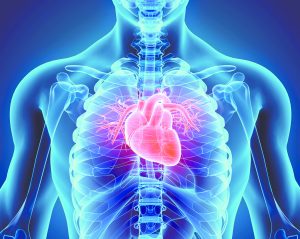Dr. Sivasekaran, MD
 There are many things that can affect your risk for developing heart disease. Three of them you cannot control—your age, your gender and your family history. However, there are several other things you can do to help you avoid a heart attack or stroke, such as maintaining a healthy weight, exercising regularly and quitting smoking.
There are many things that can affect your risk for developing heart disease. Three of them you cannot control—your age, your gender and your family history. However, there are several other things you can do to help you avoid a heart attack or stroke, such as maintaining a healthy weight, exercising regularly and quitting smoking.
When it comes to heart disease, there are four numbers that make all the difference. Your blood pressure, cholesterol levels, body mass index (BMI) and fasting blood glucose offer an accurate glimpse of overall heart health. By comparing your numbers with healthy target ranges, you can evaluate your heart disease risk and take steps toward a healthier lifestyle.
BMI
Calculated using your height and weight, BMI helps you determine how much body fat you carry. A BMI between 18.5 and 24.9 indicates a healthy weight. A person is considered overweight if his or her BMI is 25 or higher and obese if BMI is 30 or higher.
Cholesterol
Cholesterol comes in two main forms: high-density lipoprotein (HDL) and low-density lipoprotein (LDL). While HDL helps keep your heart healthy, LDL can contribute to blockages. Adults age 20 and older should have a cholesterol screening at least every five years. Total cholesterol levels should be lower than 200 mg/dL, triglycerides lower than 150 mg/dL, LDL cholesterol levels lower than 100 mg/dL, and HDL cholesterol levels higher than 40 mg/dL in men and 50 mg/dL in women, according to the American Heart Association.
Blood Pressure
When blood pressure is higher than it should be, your heart has to work harder to pump blood, which can damage your arteries. Normal, healthy blood pressure is defined as a reading of 120/80. A blood pressure reading of 140/90 indicates hypertension, or high blood pressure.
Fasting Blood Glucose
Healthy adults ages 45 and older should have a fasting blood glucose screening at least every three years. A healthy fasting blood glucose level falls between 70 and 100 mg/dL.
Taking charge of your heart health begins with understanding your heart disease risk. To learn your numbers, speak with your doctor.
WHAT’S YOUR SCORE?
If you currently don’t have symptoms of heart disease, you still may worry about the likelihood of having a heart attack. A CT calcium scoring screening is an easy way to determine if you are at risk. This non-invasive test takes only a few minutes, but it can help you and your doctor make important decision about how to lower your risk for heart disease.
Men and women with the following risk factors may benefit from this screenings:
• Diabetes
• High cholesterol
• High blood pressure
• Cigarette smoking
• Being overweight or obese
• Physical inactivity
• A family history of heart attack
SIVA M.D. P.A.
Office Location
2845 Southeast 3rd Court
Ocala, FL
www.DrSivaOcala.com
352-369-5300
Check Also
CUSTOMIZABLE LIGHT ADJUSTABLE LENS A GAMECHANGER FOR CATARACTS PATIENTS
All Americans have some degree of cataract change by the age of 75. As the …
 Central Florida Health and Wellness Magazine Health and Wellness Articles of the Villages
Central Florida Health and Wellness Magazine Health and Wellness Articles of the Villages



